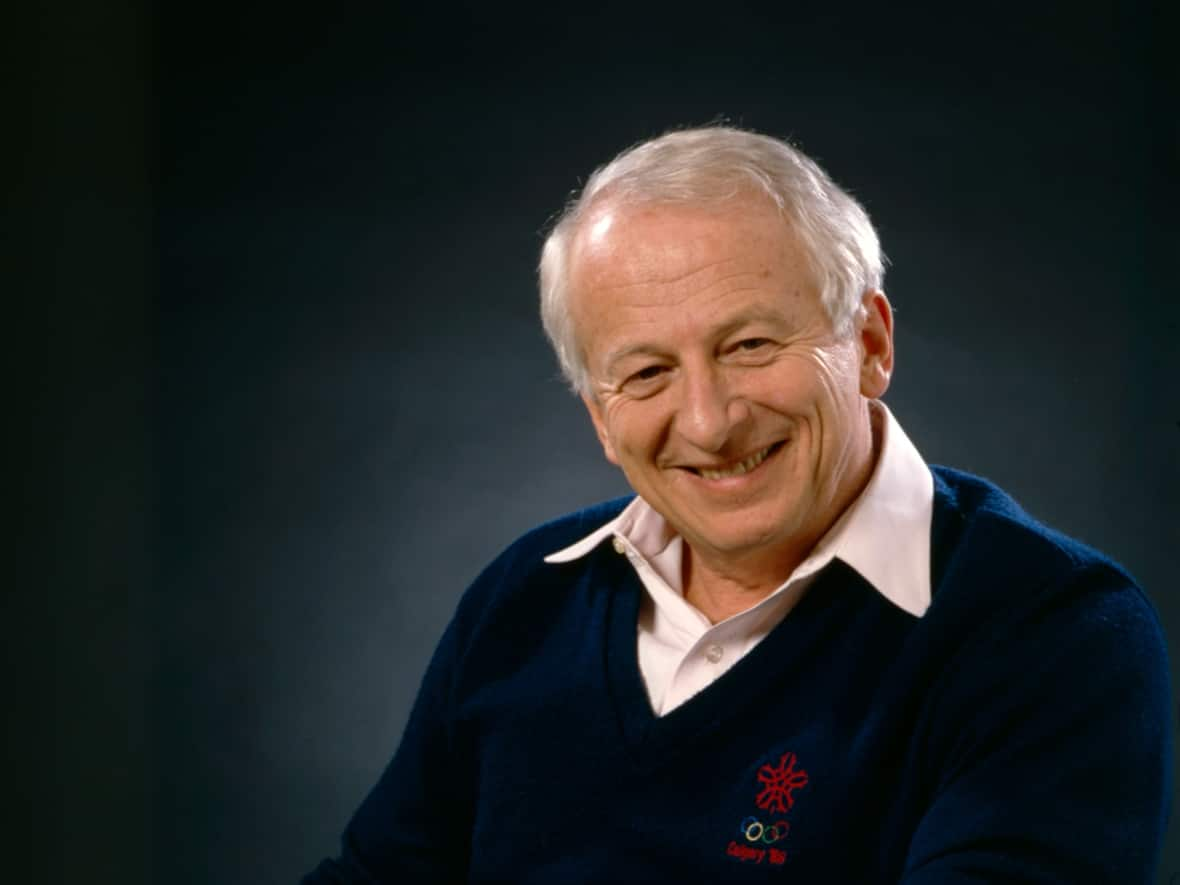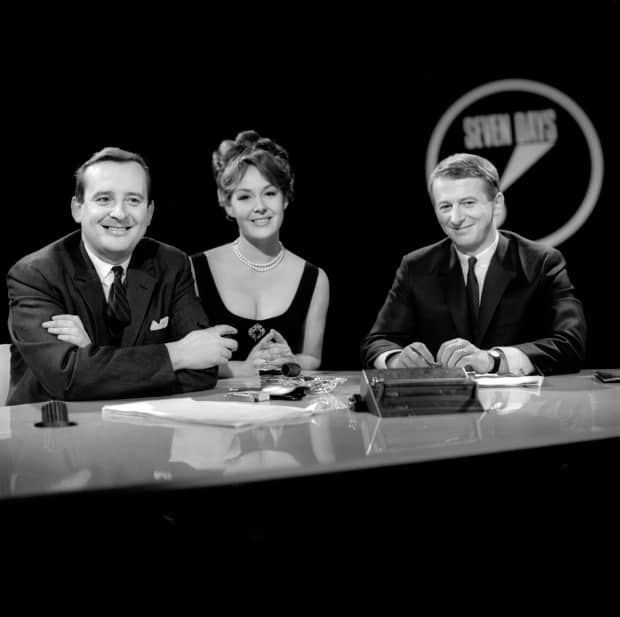Canadian broadcasting legend Patrick Watson dead at 92

Patrick Watson, a broadcasting legend whose work in the industry spanned over five decades and helped create a trove of iconic Canadian content, has died. He was 92.
Through work as a producer, author, television host and more, Watson helped shape the face of Canadian journalism — while never shying away from controversy or difficult decisions.
Born in Toronto in 1929, Watson began his career playing Jake in CBC Radio's daily children's series The Kootenay Kid in 1943 — a job for which he started out making $1 an episode.
He began to pursue a career in academics, but in 1955 abandoned a PhD in linguistics from the University of Michigan to work at the CBC. Soon after, he was hosting The Four Corners travel series in 1957, then proceeded to work both in front of and behind the camera for a number of other shows, including The Watson Report (1975-1981), Witness to Yesterday (1974-1976, as well as its 1998 revival), Venture (1985-1987) and The Struggle for Democracy (1989).
The Struggle for Democracy took five years to make, was filmed in 30 countries and was, at the time, the most expensive original documentary series ever made for Canadian television.

In 1964, Watson started work on one of the most influential shows of his career, This Hour Has Seven Days. The Sunday night program, which Watson hosted alongside Laurier LaPierre and co-created with Douglas Leiterman, was an innovative public affairs series that drew an audience of millions with its no-holds-barred, opinionated style.
'I was looked upon as a troublemaker'
Based on the BBC program That Was The Week That Was, the series used a mix of documentary material, satire and original music by Canadian actor and singer Dinah Christie to review news of the week — and often pillory influential figures. It ran for two years and released 50 episodes before being cancelled in 1966 due to its provocative nature, after which Watson spent a number of years as an independent producer and journalist.
"I was looked upon as a troublemaker," Watson said in a 1981 interview with Maclean's magazine of leaving CBC after This Hour's end. "Partly, it was a self-chosen exile from the CBC, but it was also true they wouldn't hire me. I was broke after having done some spectacular TV."
Writer of Heritage Minutes
Still, younger Canadians may have known him better as the principal writer behind the original Heritage Minutes, a one-minute series that aimed to make Canadian history more accessible. Watson said that project, which itself has achieved legendary status in Canadian culture, was created to "persuade Canadians that they have an interesting past."
WATCH | Charles Bronfman and Patrick Watson on the origins of the Heritage Minutes:
Watson did return to CBC, and became chair from 1989, during which he presided over the broadcaster's controversial restructuring of the 1990's. In that time, 1,100 employees were fired and several stations closed in the face of a massive budget deficit.
He resigned as chair in 1994, though went on to release more work — such as hosting The Canadians: Biographies of a Nation (a biographical series by History Television) and, later, a three-volume print edition of that show.
"From his start as a teen actor on CBC Radio's The Kootenay Kid, to his storied career with CBC News and his time as Chair of the CBC/Radio-Canada Board of Directors, Patrick Watson's contribution to Canada's public broadcaster and his service to Canadians across a number of fields was far reaching, made a difference and will not soon be forgotten," a CBC spokesperson said of Watson's death.
"Both at the CBC and beyond, Watson's work as a broadcaster, producer, actor and author over five decades made him an icon of Canadian broadcasting and have left a legacy that will continue for decades to come. Our thoughts are with his family and friends."
WATCH | Patrick Watson on the art of the interview:
Watson was made an Officer of the Order of Canada in 1981, and later promoted to Companion in 2001 for promoting "excellence in Canadian television and radio." He was also a longtime disability advocate after his leg was amputated below the knee in 1960, and served as honorary chair of the Canadian Amputee Sports Association and chairman emeritus of the Canadian Abilities Foundation.
He later became an accomplished pilot, wind-surfer, water-skiier, scuba diver and magician; he had a lifelong love for the craft, and was one of three founding members of Magicana, a Canadian not-for-profit organization dedicated to the study of magic as a performing art.
He also published multiple novels, non-fiction books, and a stage play — 1983's The Book of Job, a one-man play which he starred in. As an actor, he appeared in the TV movies The Terry Fox Story (1983) and Countdown to Looking Glass (1984); the films Bethune (1977) and The Fourth Angel (2001) and the series Slings and Arrows (2003). He published an autobiography, This Hour Has Seven Decades, in 2004.

 Yahoo Movies
Yahoo Movies 
